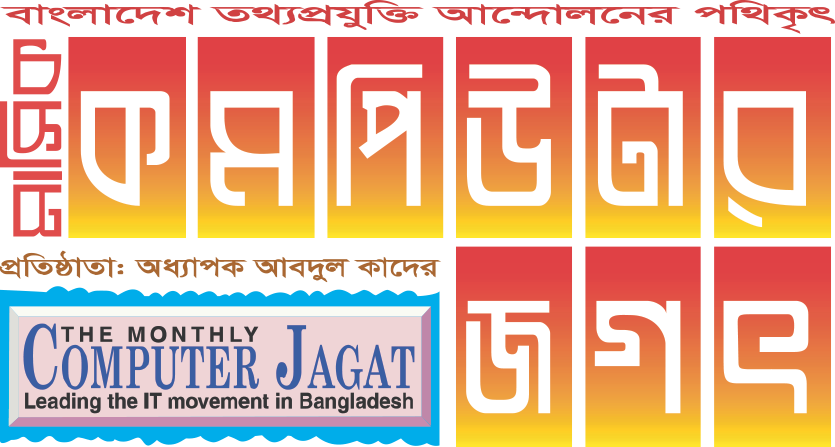হোম > Making ICT Project Successful in Bangladesh
লেখক পরিচিতি
লেখকের নাম:
আহমেদ হাফিজ খান
মোট লেখা:১৫
লেখা সম্পর্কিত
পাবলিশ:
২০০৯ - মে
তথ্যসূত্র:
কমপিউটার জগৎ
লেখার ধরণ:
বাংলাদেশআইসিটি,
তথ্যসূত্র:
ইংরেজি সেকশন
ভাষা:
বাংলা
স্বত্ত্ব:
কমপিউটার জগৎ
Making ICT Project Successful in Bangladesh
The Government of Bangladesh has seen numerous failures with the ICT (Information & Communications Technology) projects. There are often common themes evident in failed projects in Bangladesh, the most prevalent of these are: (1) lack of experience and poor ICT governance; (2) unnecessary overseas travel; (3) faulty design; (4) unnecessary unexpected diversion of fund to please few high-ups; (5) unnecessary use of car or transport for personal benefits; (6) recruitment of ill qualified project staff (7) procuring outside the mandate of the project to satisfy the greed’s of project director and his superiors.
Bangladesh government has extremely lax and unaccountable corporate governance culture. When it comes to corporate governance, experience and complexity in an inverse ratio can be a recipe for trouble. In recent large failed projects, inexperienced project directors and poorly informed, disinterested and reactive leaders feature prominently. The project directors’ only ambition seems to make overseas tours in the name of study tours. The study tours of all government employees should be studied in terms of success and deliverables. We have seen overseas jaunts of the various officers from Ministry of Science & ICT in the name of WSIS, EMTAP, Nuclear Power Plant, Bio-gas plant etc. All these have far-reaching consequences of poor ICT governance structures and processes, including a blow-out in costs, a compromise in the quality of the outcome delivered a failure to achieve the expectations set for a project and, in some cases, expensive non implementable recommendations by the overseas consultants like turning Bangladesh into a federal state.
Bangladesh has in past seems to have ignored the value of education and expertise to the appeasement of the few in the corridors of power. The new government has a set vision of the Digital Bangladesh. Unless the vision of Digital Bangladesh spelled out clearly it will be wasted by the bureaucracy and the industry.
The following points are a guide to good governance for senior executives, drawn from recent ICT project disasters:
Clarify roles and responsibilities as a blueprint for success :
Define roles and responsibilities & accountabilities from the outset, so that all stakeholders have a clear understanding of the boundaries and what is expected of them. At the time, this consideration may be viewed as something of an administrative overhead, but the long-term benefits are significant, particularly in arresting staff attrition rates and improving morale. It is much better to do it well from the very start than to try to fix it when the crisis becomes evident.
Ensure senior management’s role is an active one – and walk the talk :
Gone are the days when ICT was merely a showpiece – something that senior management could safely ignore or delegate. ICT projects are now critical to driving an organization’s strategic objectives, mitigating risks, obtaining competitive advantage, enhancing earnings and, ultimately, increasing shareholder value.
Alignment doesn’t just happen :
Keeping the project aligned with changing business requirements will not happen automatically. Constant assessment must be carried out to ensure the project is meeting changing needs. Delivering a ‘Rolls Royce’ project with an outcome that is no longer aligned with the business obligations is a major failure.
The strategic is not the operational
Make sure that strategic roles are not confused with operational ones. Both are equally important to a successful project outcome and require due attention. However, they are not the same!
Talk, talk, talk – communication is key :
Ensure that there is a constant communication flow between stakeholders. Providing regular updates on progress will help to reduce the chance of any surprises. Communication also helps to establish clarity of the purpose and a common understanding between all parties of the desired project outcome. This approach is particularly important in a multi-vendor project or where there are geographically dispersed sites. It is essential to incorporate a communications strategy into your governance framework for a project – and communicate that strategy it to all relevant project personnel!
Consider the project from an end-to-end perspective :
‘Migration’, ‘transition-in’ and ‘transition-out’ are not just consultant ‘buzzwords’. Their relevance and impact on a project’s outcome cannot be understated. Accordingly, there is a need to think of them as a governance issue and to incorporate them into the governance framework. They will likely have a major risk, financial or time impact on any project’s outcome. If ignored, that likelihood will become a certainty.
Change doesn’t just happen :
For any major ICT project, consider your organization’s culture and its readiness for change. Planning and managing the way an organization handles change is vital – change doesn’t just occur by itself and there is a tendency in everyone to resist change to varying degrees. Accordingly, it is essential to have regard to stakeholders, project champions and others who might influence project team performance. A project implemented by an effective and cohesive team and well supported by the constituency of end users is more likely to go well.
Break down the barriers :
Regular consultation between the project team and suppliers is paramount, particularly as silos can occur in big projects. Projects come unstuck when key information is not transferred to relevant people within an appropriate timeframe. Practices need to be introduced that break down barriers and enable people to know what others are doing.
Stop unnecessary study tours :
The advent of internet has drastically reduced the necessity of study tours. The information available on internet should be enough for formulating strategy for successful implementation of the projects. The overseas study tours have created a pressure group whose only interest is overseas travel in the name of study tours and have very little to contribute towards the implementation of the project. All study tour report should be made publicly available to ensure transparency under the Right to Information Act.
By creating strong project governance from the outset, senior executives will be in a far stronger position to ensure desired project outcomes are met and legal risks are effectively managed.
CJ WEB
Achnowledgement: Oliver Barrett a partner in the Telecommunications, Media and Technology Group.
লেখাটি পিডিএফ ফর্মেটে ডাউনলোড করুন
পাঠকের মন্তব্য
অনুরূপ লেখা



